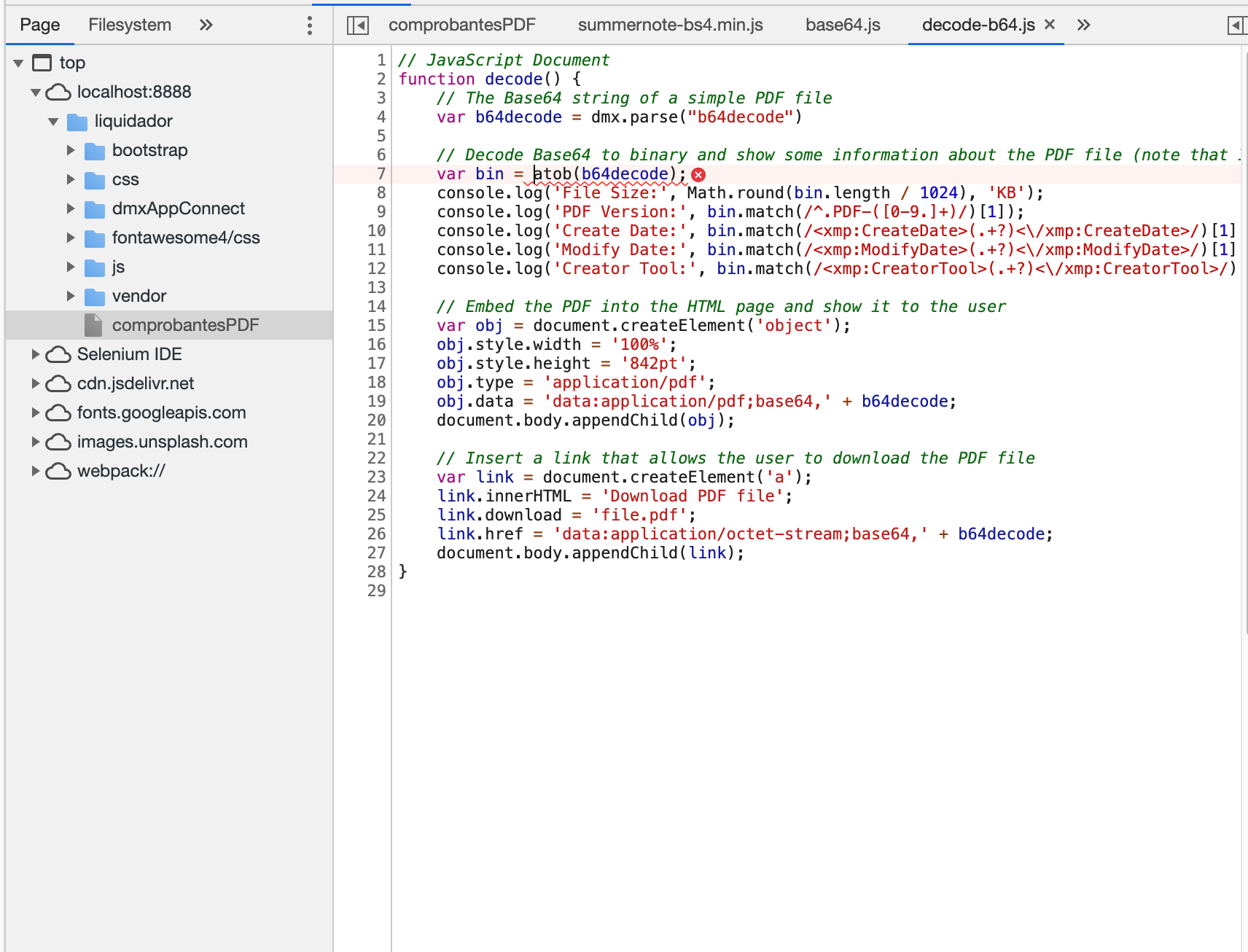The DICOM Value Representation (VR) is included in each DICOM JSON Model attribute object and named 'vr'. For example:
The JSON encoding of an Attribute shall use the JSON Data Type corresponding to the DICOM Value Representations in Table F.2.3-1. The JSON encodings shall conform to the Definition, Character Repertoire (if applicable) and Length of Value specified for that DICOM Value Representation (see Section 6.2 “Value Representation (VR)” in PS3.5) with the following exceptions:
Attributes with a Value Representation of AT shall be restricted to eight character uppercase hexadecimal representation of a DICOM Tag
- Hi, There seems to be an issue with displaying attachments in the latest TB builds (Lanikai 3.1b2pre). An attachment with a content type header of.
- Base64 is a group of similar binary-to-text encoding schemes that represent binary data in an ASCII string format by translating it into a radix-64 representation. The term Base64 originates from a specific MIME content transfer encoding.
- This might be something else to look at, but maybe an options: string contentType = System.Web.MimeMapping.GetMimeMapping(fileName).

Table F.2.3-1. DICOM VR to JSON Data Type Mapping
VR Name | Type | JSON Data Type |
|---|---|---|
AE | Application Entity | String |
AS | Age String | String |
AT | Attribute Tag | String |
CS | Code String | String |
DA | Date | String |
DS | Decimal String | Number or String See note. |
DT | Date Time | String |
FL | Floating Point Single | Number |
FD | Floating Point Double | Number |
IS | Integer String | Number or String See note. |
LO | Long String | String |
LT | Long Text | String |
OB | Other Byte | Base64 encoded octet-stream |
OD | Other Double | Base64 encoded octet-stream |
OF | Other Float | Base64 encoded octet-stream |
OL | Other Long | Base64 encoded octet-stream |
OV | Other 64-bit Very Long | Base64 encoded octet-stream |
OW | Other Word | Base64 encoded octet-stream |
PN | Person Name | Object containing Person Name component groups as strings (see Section F.2.2) |
SH | Short String | String |
SL | Signed Long | Number |
SQ | Sequence of Items | Array containing DICOM JSON Objects |
SS | Signed Short | Number |
ST | Short Text | String |
SV | Signed 64-bit Very Long | Number or String See Note. |
TM | Time | String |
UC | Unlimited Characters | String |
UI | Unique Identifier (UID) | String |
UL | Unsigned Long | Number |
UN | Unknown | Base64 encoded octet-stream |
UR | Universal Resource Identifier or Universal Resource Locator (URI/URL) | String |
US | Unsigned Short | Number |
UT | Unlimited Text | String |
UV | Unsigned 64-bit Very Long | Number or String. See Note. |
Note
Handle content types in Azure Logic Apps.; 5 minutes to read; e; j; i; c; M; In this article. Various content types can flow through a logic app, for example, JSON, XML, flat files, and binary data.

For IS, DS, SV and UV, a JSON String representation can be used to preserve the original format during transformation of the representation, or if needed to avoid losing precision of a decimal string.
Octet Stream To Base64 Nodejs
Although data, such as dates, are represented in the DICOM JSON model as strings, it is expected that they will be treated in the same manner as the original attribute as defined by Chapter 6 in PS3.6.
Follow my blog for more interesting topics on Dynamics 365, Portals and Power Platform. For training and consulting, write to us at info@xrmforyou.com
I was recently conducting a training on Power Automate and there in came this question. How do I convert a byte array to base64 string in PowerApps.
After all there is a function in Power Automate – base64ToBinary which converts a base64 string to Binary. But there is no function like binaryToBase64 in Power Automate. If you are from C#, you would be thinking wish you had a method similar to Convert.ToBase64String in Power Automate too.
Well, I can understand the disappointment here. But frankly speaking the method is never needed. And it is because of that way Power Automate handles an incoming byte array.
For example you are reading a file from one drive and want to convert the binary file into Base64 string for further processing. You actually don’t need to. This is because when Power Automate will handle the incoming bytes, it will automatically convert the incoming bytes as Base64 with content type as “application/octet-stream”.
“$content-type”: “application/octet-stream”
And to get the content in Base64 format, you just need this expression – triggerBody()?[‘$content’]
Let’s see this with an example here.
I create a Manual trigger flow with “abcd” as my initial input parameter. Below is my flow definition
Nothing complex about the flow. Steps are explained below
- Convert the text into base64 string using expression – base64()
- Use the Compose operation to convert the base64 encoded string into binary using the base64ToBinary() expression.
- In the final step I assign the Binary input to a string variable
Octet-stream Base64


Octet Stream Vs Base64
Let’s see what is the final output when we start with initial input – “abcd”.
Observe the Compose step where I used base64ToBinary() expression. As you can see, that the content is actually still in base64 format but the content-type has been changed to “application/octet-stream”.
In the final step when I am using the Output from from Compose Action and assigning it to a string variable, it is actually decoding the base64 text into plain text.
And that is why there is no function like binaryToBase64. After all the content is always in base64. The content-type reflects the type of content stored internally.
Hope this helps!
Debajit Dutta
(Microsoft MVP)